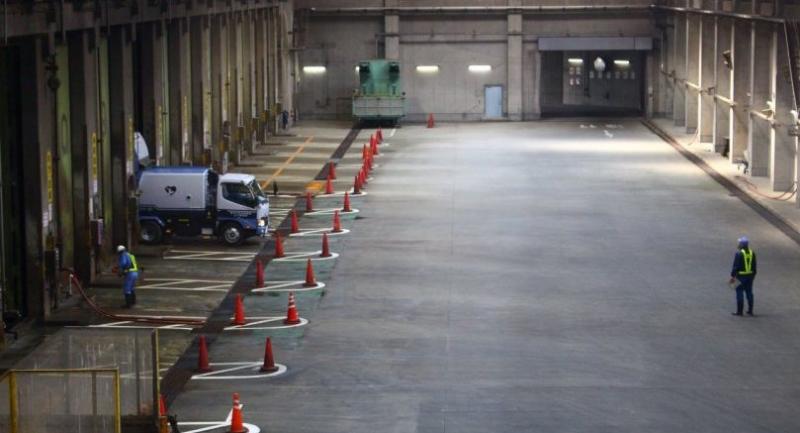Strict recycling helps Yokohama slash waste and generate ‘clean’ power from rubbish

RECYCLING is the key to efficient waste-to-power incinerators and effective control of rubbish in Yokohama, officials in the Japanese city have stressed. Within three years the city cut its garbage by more than 38 per cent and closed down three waste incinerators due to the lower amount of waste.
However, Thai academic Pracha Koonnathamdee, from Thammasat University’s Faculty of Economics, said the situation in Thailand was the opposite of Japan and urged the government to come up with the laws and regulations to encourage intensive recycling here.
Yokohama, at a glance, seemed a very clean and tidy city. There was little if any trash on the roads or pavements. The secret behind this cleanliness that has become a facet of the Japanese was at Kanazawa plant, one of four waste-to-power incinerators that remain in the city.
Toshihide Abe, the director of the plant, revealed that this waste-to-power incinerator has a capacity to burn 1,200 tonnes of garbage a day for heat and electricity, while getting rid of daily waste produced by city residents.
However, Abe stressed that the key to making the facility run effectively around the clock was rigorous recycling, which ensures that only certain garbage is eliminated by burning and cuts the amount of overall garbage in the city.
“We have strict regulations on recycling in order to have suitable waste for burning at our facility. We only burn household combustible waste here, which consists of non-recyclable paper, kitchen waste, wood and trees, and non-recyclable plastic items,” he said.
“We also closely inspect incoming waste to our facility. In 2010 we conducted an inspection on 89 per cent of the trash trucks, and if we found that a truck brought a large volume of inappropriate or recyclable waste, the garbage collection firm was instructed to take it back.”
He said selecting appropriate waste boosts the plant’s efficiency. This is because the proper waste has low moisture and thus can burn at a high temperature of around 850 to 950 degrees Celsius, which can greatly reduce environmentally harmful |dioxin.
“Due to the intensive recycling campaign, we can reduce the waste that has to be burnt significantly. We used to have seven waste-to-energy plants in Yokohama in 2005, but three of them were closed by 2010 due to the reduced amount of waste,” he said.
Back in 2003, Yokohama was just another large city that generated over 1.5 million tonnes of trash a year. But, after launching an intensive recycling operation called “Yokohama G30 Plan”, the city’s annual amount of garbage was cut to 1.1 million tonnes in 2005 – five years before a deadline in 2010.
City of Yokohama’s international technical cooperation director Toru Hashimoto said in order to become a smart city, one aspect that Yokohama tried to focus on was efficient waste management to become a cleaner city. So, a campaign was set up to focus on stricter waste segregation to further cut the city’s total waste.
“We came up with a 3R – Reduce, Reuse, Recycle – campaign right after the Yokohama G30 Plan in 2011 for the 16-year period until 2025,” Toru Hashimoto said.
The new campaign intensified the city’s already strict recycling system and took it to a new level, as five types of garbage and seven items were diversified into 10 types and 15 items.
“We not only recycle, but focus on reducing and reusing waste as well. Due to the accomplishment of our public awareness raising campaign and education in schools, we can encourage people to buy just enough food to reduce their garbage amount and reuse items that are still in a good condition.
“We can achieve such a big goal because of public participation and the high awareness of our society.”
The 3R campaign was aimed at cutting 10 per cent of the total amount of garbage by 2009, as well as halving greenhouse gas emissions from good garbage management.
In Thailand, economics professor Pracha said it would take this country time to achieve recycling at the same level as Japan, because the Kingdom lacks an official policy and laws that encourage recycling in daily life.
“Thai authorities still do not have ways to promote recycling in our everyday lives. There are many people, who are environmentally conscious who practise recycling at home, but in the end when the officers collect garbage, they mix it up again, so we need official measures to support recycling,” Pracha said.
He stressed that the government was keen to use waste-to-energy technology to tackle the country’s garbage woes, but said if Thailand still does not have a good recycling system waste-to-energy plants would be a very bad choice. That is because only some waste is suitable to burn for energy, and if all kinds of waste are burnt, an incinerator cannot maintain efficiency, or control the emissions that would create pollution.
“If everything is burnt in the waste-to-power incinerator, the facility would not be able to operate at full capacity. In addition, it would not be able to control high temperature burning, and if heat drops to 600-700 degrees Celsius, toxic dioxins would not be properly eliminated and released to the environment,” he said.
“If Thailand wants to be as clean as Japan, we have to encourage intensive recycling in our daily lives and properly plan the construction of waste-to-energy plants in suitable locations and equip them with all necessary technology to control the pollution.”
